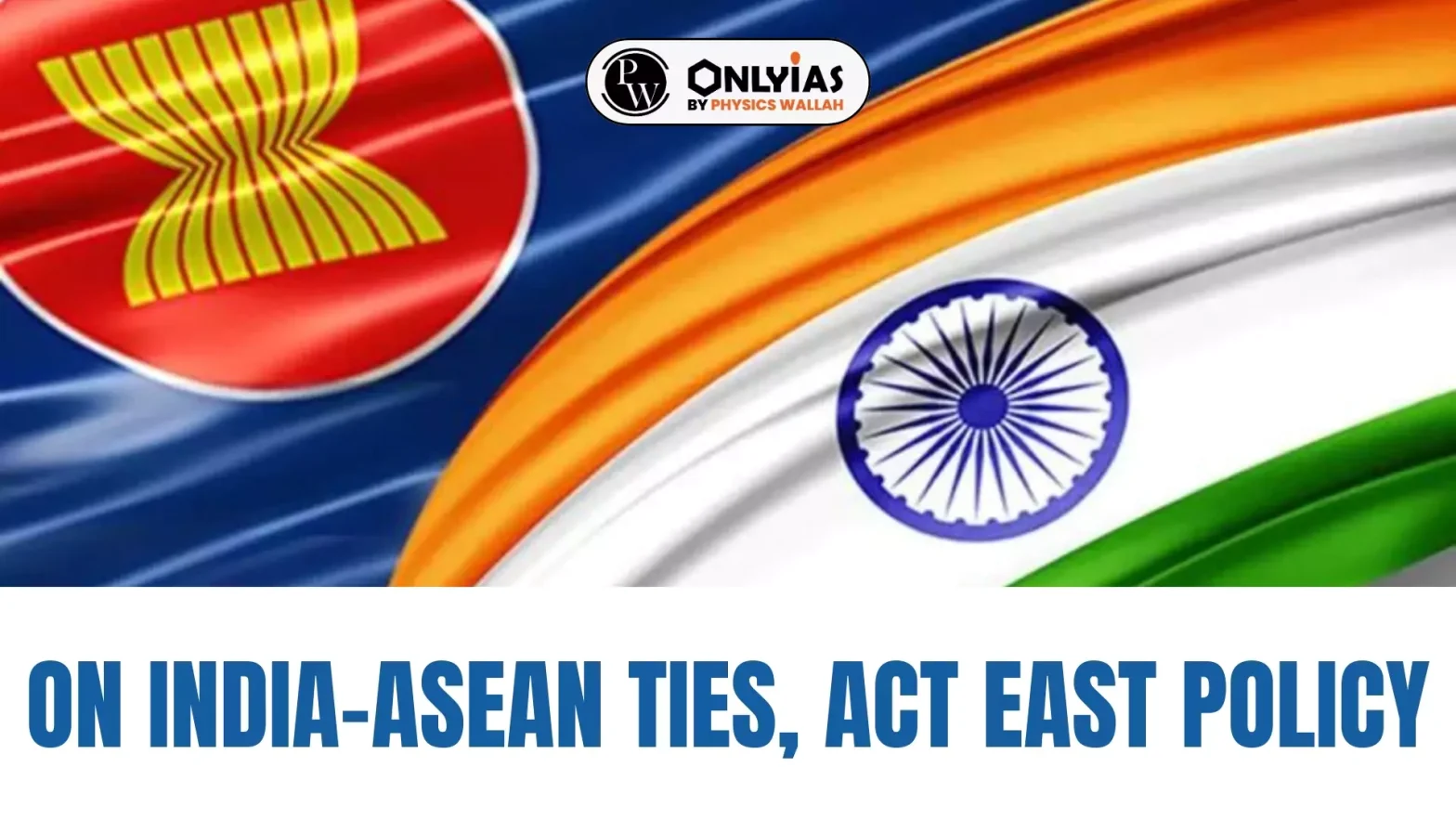Recent high-level visits like the Prime Minister’s trips to Brunei and Singapore highlights India’s renewed commitment to strengthening ties with the East. Additionally, India’s efforts to lay out the red carpet for the Prime Ministers of Vietnam and Malaysia further demonstrate this commitment. Upcoming visits to Laos for the ASEAN-India summit, as well as to the Philippines and Indonesia, emphasise India’s increasing focus on deepening regional engagements in the East.
Background
In the early 1990s, following the disintegration of the USSR into 15 independent states, India lost a longstanding ally and was compelled to seek new friends and strategic partners. During this period, India introduced the Look East policy in the early 1990s to strengthen ties with Southeast Asia.
With the arrival of the Modi government in 2014, the policy evolved into the Act East policy. This shift marked a move from merely looking towards the East to actively engaging with the region.
The Act East policy emphasises a more proactive approach, encompassing not only ASEAN countries but also expanding focus to include other Indo-Pacific nations such as Australia, New Zealand, Japan, and South Korea. This policy shift has intensified India’s diplomatic, economic, and strategic engagements in the region, highlighting a broader and more dynamic approach to regional partnerships and collaborations.
Enroll now for UPSC Online Course
| Note: Difference between Look East and Act East Policy
The difference lies in energy, diplomacy, investment, and intensity, with the government having increased its focus area. |
Relations with Brunei
- First Bilateral Visit: India’s engagement with Brunei has been historically limited, with the recent visit marking the first bilateral visit by an Indian Prime Minister to Brunei. This visit signifies a significant step forward in bilateral relations.
- Strategic Importance of Brunei: Although Brunei is a small nation, it holds strategic importance due to its proximity to the South China Sea, where China’s influence is increasing. This makes Brunei a crucial partner for India. Additionally, Brunei’s alliance with the United States further enhances its significance in the region.
- Economic Ties and Trade Relations: Brunei is rich in oil and gas reserves, and India has been a significant importer of these resources. Over the past decade, while trade between India and ASEAN countries has doubled, trade with Brunei has decreased. This decline is largely due to India’s increased oil and gas imports from Russia after 2022, driven by lower prices.
- Recent Developments and Discussions: Although there is currently no significant strategic partnership between India and Brunei at present, recent discussions between the prime ministers of both countries have touched on defence and geo-strategic issues. The Indian Prime Minister made a veiled or indirect criticism about China by advocating for free navigation in the South China Sea’s sea lanes. Additionally, the two nations discussed space cooperation, with a focus on Brunei potentially hosting an ISRO station, along with exploring other potential partnerships.
Relations with Singapore
Focus on the Semiconductor Industry
- Focus on the Semiconductor Industry: The Prime Minister of India’s visit to Singapore placed significant emphasis on the semiconductor industry, acknowledging Singapore’s crucial role in the global electronics supply chain. As the global demand for semiconductors continues to rise, their use in an expanding array of products is becoming increasingly vital.
- Diversification due to probable Disruption: While Taiwan remains a major producer of semiconductors, from which India currently imports, the ongoing conflict between China and Taiwan presents a potential risk. India is concerned about possible disruptions in the semiconductor supply chain in the event of an escalation and is therefore exploring additional partners for procurement.
- Need expertise to strengthen Manufacturing Capabilities: India is actively working to develop its semiconductor manufacturing capabilities. However, the country currently lacks the necessary expertise in this area. Singapore’s support could be pivotal in helping India build the required capacity. India needs more technical expertise and investment, particularly in rare earths and chip manufacturing.
- Mutual benefits: Singapore, facing a labour shortage and dealing with rising labour costs and land constraints, could benefit from access to Indian labour.
- Concerns: India’s decision to exit the ASEAN-led Regional Comprehensive Economic Partnership (RCEP) in 2019 has limited its involvement in a significant regional free trade agreement. India has also refused to reconsider its decision as requested by ASEAN.
Check Out UPSC CSE Books From PW Store
For India, this collaboration would help reduce its reliance on any single nation, such as Taiwan or China, especially in the context of regional conflicts. Additionally, Singapore’s investment in India’s semiconductor manufacturing sector could help mitigate the recent decline in Foreign Direct Investment (FDI). This cooperation could be a strategic win-win for both countries.
Way Ahead (India-ASEAN)
- The ASEAN-India Trade in Goods Agreement (AITIGA), signed in 2009, needs to be renewed.
- Similarly, the Comprehensive Economic Cooperation Agreement (CECA) with Singapore, signed in 2005, requires an upgrade.
- While India’s commitment to ASEAN centrality on all strategic issues in the Indo-Pacific is strong, closer coordination on geopolitical strategic issues such as Myanmar, the South China Sea, and Quad engagement with ASEAN countries is necessary.
For India, this collaboration would help reduce its reliance on any single nation, such as Taiwan or China, especially in the context of regional conflicts. Additionally, Singapore’s investment in India’s semiconductor manufacturing sector could help mitigate the recent decline in Foreign Direct Investment (FDI). This cooperation could be a strategic win-win for both countries.
Enroll now for UPSC Online Classes
Conclusion
For India to fully realise the potential of its “Act East” policy, it must consistently engage with ASEAN countries, address trade and investment gaps, and effectively navigate regional geopolitical issues.
![]() 9 Sep 2024
9 Sep 2024
